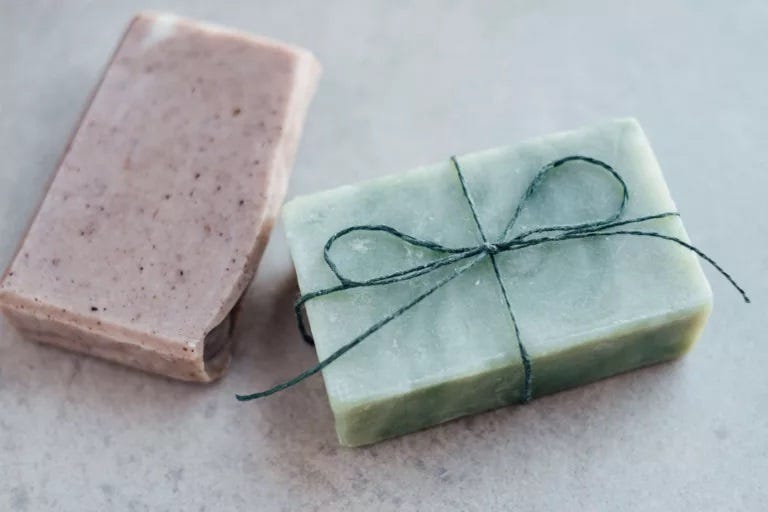Is Castile Soap a Friend or Foe for Clear Skin?
In the realm of skincare, the quest for a gentle yet effective cleanser that keeps your skin clear and radiant is a never-ending journey. Castile soap, a versatile and natural soap originating from the Castile region of Spain, has gained popularity for its purported skin-friendly properties. But does it truly live up to the hype, or does it pose the risk of clogging pores and causing breakouts? In this blog, we will decode the mysteries of Castile soap and explore whether it’s a savior for clear skin or a potential pore-clogger.

Before we delve into its impact on the skin, let’s get to know Castile soap a bit better. Castile soap is traditionally made from a blend of pure, plant-based oils, most commonly olive oil, and is known for its mild and gentle nature. It’s devoid of synthetic chemicals, artificial fragrances, and harsh detergents that are commonly found in commercial soaps, making it a preferred choice for those who seek a natural and eco-friendly alternative.
Skin-Friendly Claims
Advocates of Castile soap often highlight its potential benefits for the skin, which include:
- Gentle Cleansing: Castile soap is renowned for its gentle and non-stripping cleansing properties. It effectively removes dirt, makeup, and impurities without disrupting the skin’s natural balance.
- Natural Ingredients: Castile soap’s ingredient list is refreshingly simple, typically comprising oils, water, and natural plant extracts. This makes it an attractive option for those with sensitive skin or skin conditions.
- Moisturizing Qualities: The high olive oil content in many Castile soaps can impart hydration to the skin, leaving it feeling soft and nourished.
- Versatility: Castile soap is incredibly versatile and can be used for a variety of skincare and household purposes, from body wash and facial cleanser to cleaning agent and even pet care.
The Potential Pore-Clogging Debate
While Castile soap boasts many admirers, there is a segment of users who have reported experiencing breakouts or an increase in pore congestion after using it. This brings us to the crux of the debate: does Castile soap clog pores and lead to acne?
The answer lies in part in understanding the diverse formulations of Castile soap available on the market. Castile soap can be crafted with a variety of oils, and the choice of oil can influence its impact on the skin. For example, Castile soap made primarily with coconut oil may be more prone to clogging pores due to its higher comedogenicity (pore-clogging potential) compared to olive oil-based Castile soap.
However, it’s essential to note that not all individuals react the same way to castile soap. Skin types vary, and what works wonderfully for one person might not suit another. If you’re considering using castile soap as part of your skincare routine, here are some tips to help prevent potential breakouts:
- Choose the right type: Opt for castile soap that is primarily olive oil-based, as it is less likely to clog pores compared to formulations that rely heavily on oils with higher comedogenicity.
- Patch Test: Before using castile soap on your face or body, perform a patch test on a small area of your skin to determine if it triggers any adverse reactions.
- Balancing Act: After using castile soap, be sure to follow up with a moisturizer to maintain the skin’s hydration and barrier function.
- Moderation: Don’t overuse Castile soap. For many, using it once a day or every other day is sufficient to avoid any potential pore-clogging effects.
- Monitor Your Skin: Keep a close eye on your skin’s response to Castile soap, especially in the first few weeks of use. If you notice any adverse reactions, discontinue use.
Castile soap can be a beneficial addition to your skincare routine due to its gentle cleansing properties and natural ingredients. However, its impact on the skin varies from person to person. While some find it helpful for maintaining clear skin, others might experience pore-clogging and breakouts, especially if the soap contains high-comedogenic oils. To determine if castile soap is suitable for you, opt for olive oil-based formulations, perform a patch test, and monitor your skin’s response. By taking these precautions, you can enjoy the potential benefits of castile soap while minimizing the risk of adverse effects.
Comments
Post a Comment